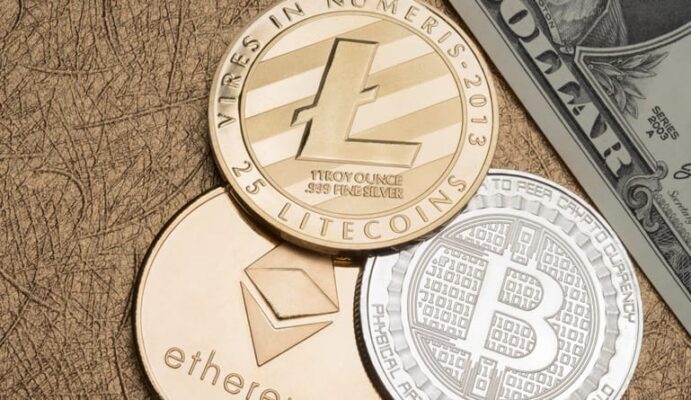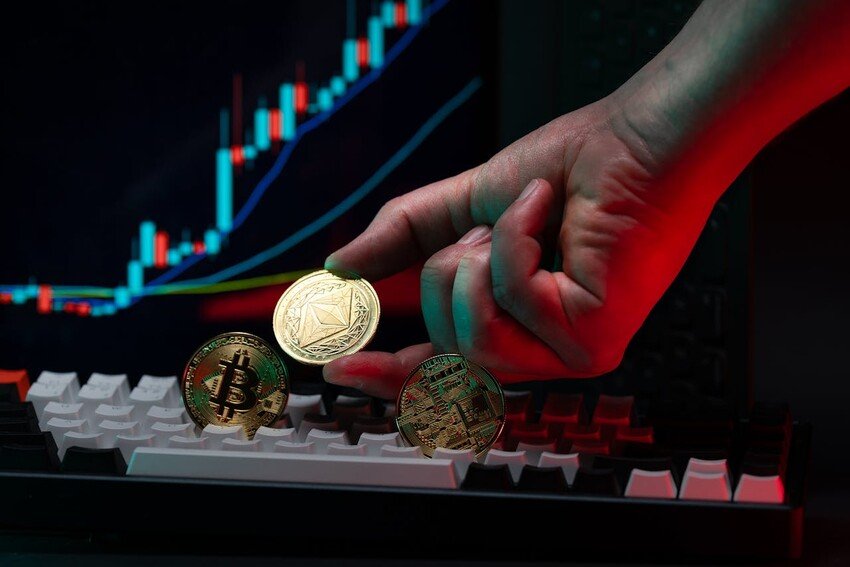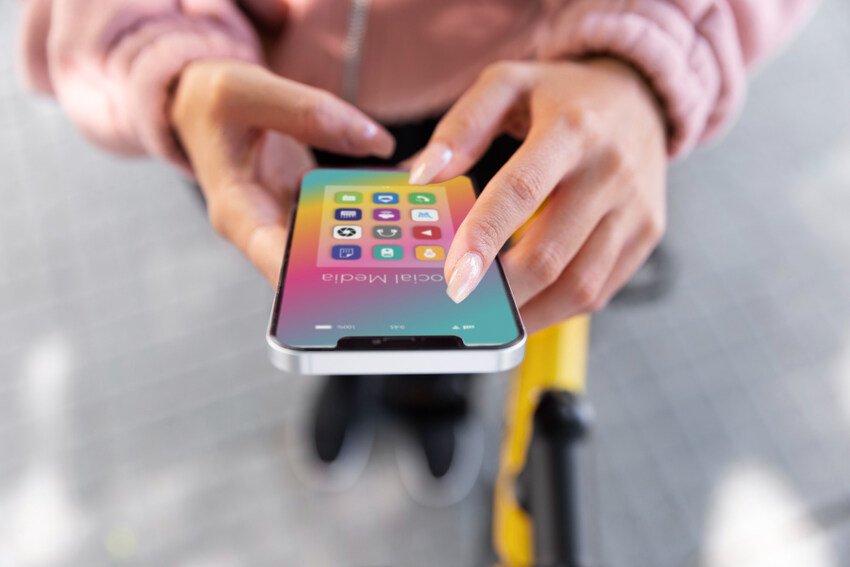When someone mentions Blockchain, are you confused with it? Why is it a big deal? Why is everyone talking about it? Although Blockchain has been a hot topic for the past few years, it’s new and confusing for people. It’s hard to understand how it can impact you and is changing your life.
Blockchain technology is an invention we have never seen before; even though many people have tried to digitize money, nothing like Blockchain has ever existed. It’s okay to be wary about this. When the Internet was first launched in 1994, many people didn’t understand how it’ll change our lives. Blockchain is the next big thing that will revolutionize the way we are living now.
So let’s start with the Basics,
What is Blockchain?
Blockchain makes the history of any digital asset unalterable and transparent—recorded by an unyielding cryptographic signature called the hash. You can say that the idea of distributed ledger is like a distributed excel sheet or a database; it’s just a store of information that is not stored in one place but has multiple copies of it in many different places. For example- Every time your copy of data is updated, then everyone’s copy of data is also updated. This is called distributed ledger or distributed computing.
The reason why Blockchain is so extraordinary is the decentralized control over the distributed ledger. So how does this work? In simple terms, for an update to the database of that distributed data owned by, let’s say, 500 people, for each update, everyone who owns the copy, i.e. those 500 people have to vote yes for the update to happen. This allows Blockchain to have a democratic storage and update mechanism by the group of participants rather than having one mining controller. This leads to many advantages, such as avoiding having one controller who can go rogue or manipulate that data as per their wish. The added advantage of having a cryptographic signature means that when you vote, your name is encrypted into a voting ID. Therefore, ironically it’s the safest voting system that exists.
The name itself Blockchain is derived from the term that the data is stored in the chain blocks during a transaction. Even though the system has now been updated and not every system uses a chain block to store data, it can be a tree or graph; the term stays with us.
Blockchain comprises three important concepts, namely; blocks, nodes, and miners.
Blocks
It’s kind of obvious that “blockchain” will have a block. A chain contains multiple blocks. Each block stores data. When a block is created, a nonce is randomly generated. It is a 32-bit whole number. A nonce generates a cryptographic hash when the first block of the chain is created.
A nonce generates the cryptographic hash when the first block of a chain is created. The data in the block of a cryptographic hash is considered signed and forever tied to the nonce and hash unless it is mined.
Miners
How are blockchains formed? A block is formed after it’s mined successfully. The people who mine new blocks are called miners, and adding new blocks on the chain is called mining.
The reason why it’s hard to manipulate bitcoin technology is because of how it’s built. Miners use special software that helps them find a nonce that generates an acceptable hash. What does this mean? Since the nonce is 32 bits and is 256, there are many possible nonce-hash combinations before a correct one is found to make a block. That nonce is called “golden nonce”, and that block is then added to the chain. So making the change in a block needs to remain, not only for that individual block but the block that follows after it as well.
Nodes
Decentralization is one of the unique aspects of blockchain technology. This means that no one computer or organization can own the chain as it follows a distributed ledger. This distribution is done through the nodes that connect the chain.
Node is any device that maintains the copies of Blockchain and keeps the network working.
So what’s the big deal about Blockchain? The most controversial use of Blockchain is Cryptocurrencies. If it wasn’t for blockchain technology, cryptocurrency like bitcoin couldn’t exist. In this sense, it’s important to understand how money works. Money is a value accepted as a form of an asset, the standard of which is set by the country’s central bank. At the same time, bitcoin is a decentralized digital currency. In this case, When X wishes to send one bitcoin to Y and then sends the same one bitcoin to Z, there is no intermediary body checking on X. So how does this transaction work? This Blockchain network is made trustworthy among the peeps who don’t know each other because of the blockchain technology, which verifies each transaction itself. The system is public and transparent, and no one can change it alone.
What is cryptocurrency?
Cryptocurrencies are digital currencies (or tokens), like Bitcoin, Ethereum or Litecoin, that can be used to buy goods and services. Just like a digital form of cash, Crypto can be used to buy everything from your lunch to your next home. However, unlike cash, Crypto uses Blockchain to act as both a public ledger and an enhanced cryptographic security system, so online transactions are always recorded and secured because of blockchain technology. There are a varied number of crypto jobs available which will help you delve deeper into the field. The appeal of cryptocurrency is that due to the public ledger, it’s safe and secure.
So why is everyone suddenly talking about cryptocurrencies? Let us help you! Here is a few reason’s Crypto is the hot talk of the town:
- Since Blockchain is a transparent system, its security makes it almost impossible to be cheated, stolen or manipulated. Each cryptocurrency has its identifiable evident number that is allocated to the owner.
- The way any currency works is that it’s dependable on the currency exchange rate and the central banks. Whereas Blockchain is decentralized, it allows cryptocurrency to exchange anywhere in the world independent of those two factors.
- Cryptocurrency can make people rich; be it through cryptocurrency jobs or via investing in Crypto. Many people who invested in Crypto in the early years have found themself fortune overnight. At the same time, the current market is pushing everyone to invest in Crypto as soon as they can. The stock and price of bitcoin are rising every day, though the outcome of this is yet to be seen if it’s positive or not.
- More and more large corporations and countries are accepting the power that Crypto holds. They are making changes and coming around the idea of accepting blockchain-based digital currency as a mode of payment. One of the major reasons Bitcoin stocks saw a major hike was when in February 2021, Tesla announced it would accept bitcoin as a mode of payment for its car, and in addition, it invested $1.5 billion in bitcoin.
Blockchain technology has an endless amount of uses in every aspect, and the fact that it can identify fraud and has a secure system is gaining its trust from users worldwide.
The Smart currency: Ethereum Blockchain
Ethereum is the second most used cryptocurrency, created as the ultra-transparent ledger system for Bitcoin to operate on. In late 2013, Russian-Canadian developer Vitalik Buterin proposed a key difference in blockchain technology, and that’s the computer code used. Thus the ethereum was born. The main idea behind this was to make the internet one giant computing mechanism rather than one storage and information retrieval mechanism.
Ethereum blockchain lets developers create sophisticated programs that can communicate with one another on the Blockchain; these programs can be called smart contracts.
Ethereum programmers can create a token to represent any digital assets which in simple language means you can make your artificial coins using this program. For example, these tokens can also represent music files, contracts, concert tickets, etc.
What are smart contracts?
A smart contract is a self-executing, self-enforcing protocol that is ruled by its explicit terms and conditions stored in Blockchain. Like any other agreement, to enter a blockchain smart contract, both parties should agree to the terms and conditions stored in the Blockchain. However, the benefit of this contract is that no intermediaries are required, and the contract is automatically executed when the conditions are met as per the terms previously set in the Blockchain.
Blockchain is the next revolution; it’s the innovation that lets companies experiment with the peer-to-peer distribution of a decentralized form of media. This could help build and benefit society in many ways. One of which is the community currencies. The idea is not to replace the national currency but to empower local commerce with this technology. Community currencies can be a great way to promote equality and to counter inequality and social exclusion.
Here are some fun facts about cryptocurrency:
- In 2010, Florida-based programmer Laszlo Hanycez completed the first-ever purchase using Bitcoin — two Papa John’s pizzas. Hanycez transferred 10,000 bitcoins, whereas today, you can buy 10,000 pizzas with two bitcoins.
- In 2012 Blockchain made its first-ever pop culture appearance when mentioned in popular television shows like The Good Wife.
- In 2017, Bitcoin reached $1,000 for the first time.
- In 2018, Facebook committed to starting its blockchain group while IBM introduced a blockchain banking platform.
- El-Salvidor is the first-ever country announced on 9th June 2021 that bitcoin is officially accepted as its national currency.
- PayPal announces it will allow users to buy, sell and hold cryptocurrencies.
- The Bahamas becomes the world’s first country to initiate its central bank digital currency, known as the “Sand Dollar.”
- Bitcoin touched an all–time high of around $65,000
- Blockchain becomes a key player in the fight against COVID-19.
Blockchain is the next big thing, the thing which can revolutionize every industry. It will have an even greater impact than the Internet had. It will change the way we live; it will change the way our countries function.
Read Dive is a leading technology blog focusing on different domains like Blockchain, AI, Chatbot, Fintech, Health Tech, Software Development and Testing. For guest blogging, please feel free to contact at readdive@gmail.com.





